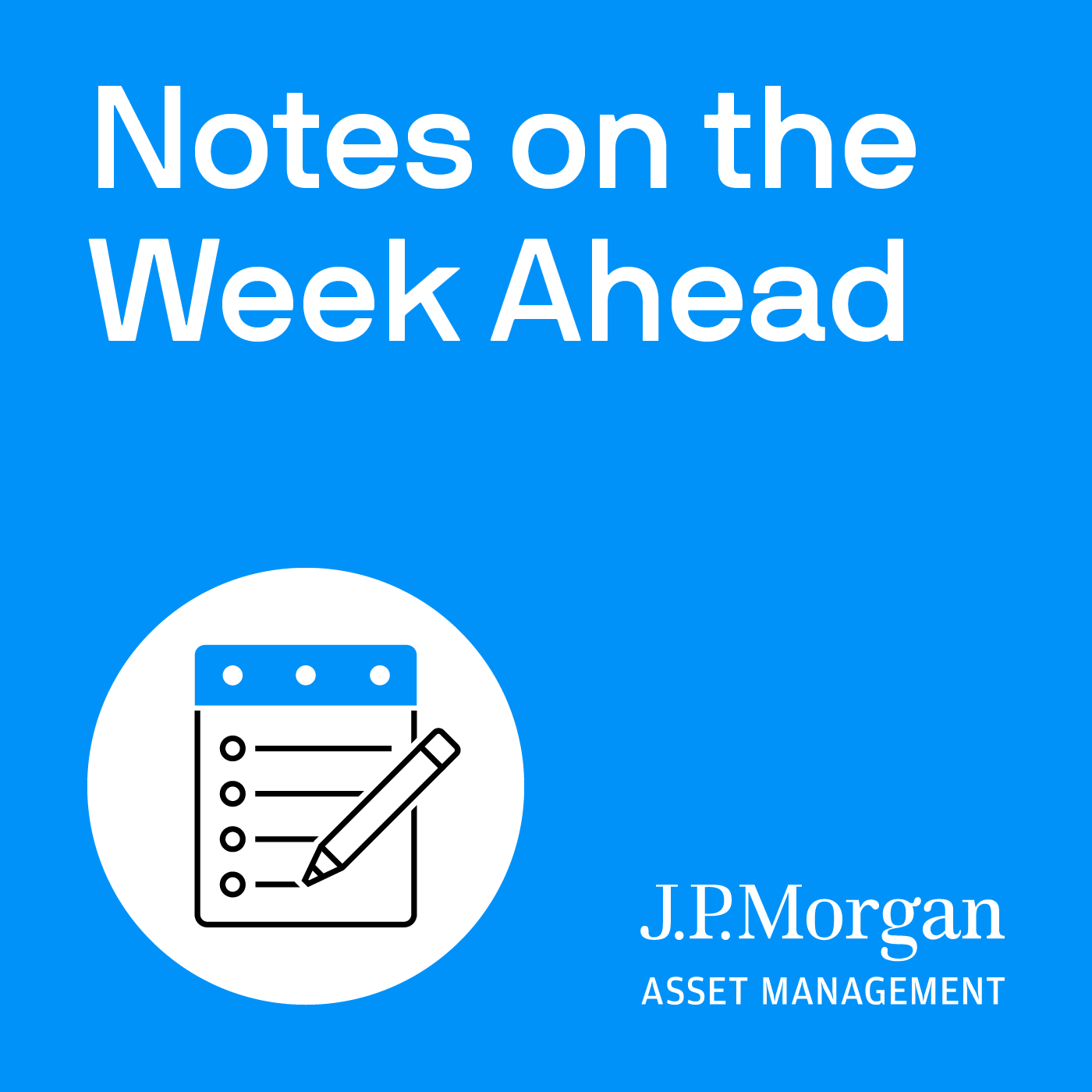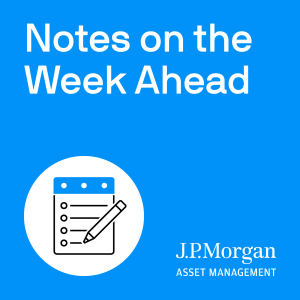
Listen to the latest insights from Dr. David Kelly, Chief Global Strategist at J.P. Morgan Asset Management to help prepare you for the week ahead.
Listen to the latest insights from Dr. David Kelly, Chief Global Strategist at J.P. Morgan Asset Management to help prepare you for the week ahead.
Episodes

Monday Nov 17, 2025
Why a 1:13 expansion feels like a 1:20 recession
Monday Nov 17, 2025
Monday Nov 17, 2025
In our age of overwhelming technological progress, I still cling to the simpler practices of my youth. I read books rather than tablets, write with an ink pen in cursive rather than text with my thumbs, and attempt to use mental arithmetic, rather than a calculator, in solving math problems. I also greatly prefer an analog watch to a digital one.

Monday Nov 03, 2025
The Importance of Navigation in the Dark
Monday Nov 03, 2025
Monday Nov 03, 2025
I was rewatching Apollo 13 over the weekend - a fabulous movie, by the way, if you’ve never seen it - about how, in 1970, three astronauts returned safely to Earth following an explosion on their spacecraft, two days into a journey to the Moon.
Among the many problems faced by the crew and mission control was one of navigation. In order to conserve electrical power, they had to shut down their computers, along with their navigation systems, until they powered them up again just before reentry. Of course, this made it far more difficult to plot their course – but it was also far more important that they do so – so that they would be in the right position when they approached the Earth.

Monday Oct 27, 2025
Oil, Inflation and the Fed: The Slide and the Rollercoaster
Monday Oct 27, 2025
Monday Oct 27, 2025
This quarter, we dropped the oil page from our Guide to the Markets.
There are always exactly 65 pages in the Guide, so when we want to add a page, we have to get rid of one. The process is, unfortunately, democratic, so when my younger colleagues wanted to add pages illustrating U.S. equity market concentration (page 10), the AI capital spending boom (page 22) and dollar weakness and international equity outperformance (page 43), I had to surrender the oil page.
But I did so with all the foreboding of well-grizzled experience.

Monday Oct 13, 2025
Going Broke Slowly: The Investment Implications of Still-Rising Federal Debt
Monday Oct 13, 2025
Monday Oct 13, 2025
One of the more challenging positions in football is that of place kicker for the visiting team. In theory, the job is simple – boot the ball through the middle of the uprights. However, there is a raucous crowd cheerfully doing its best to distract you. There are often swirling winds or other elements of nature ready to divert the football from its target the moment it leaves your foot.

Monday Oct 06, 2025
The Investment Implications of the Government Shutdown
Monday Oct 06, 2025
Monday Oct 06, 2025
As we enter the second week of the government shutdown, markets appear unconcerned. Last week, the S&P500 rose to an all-time record high, 10-year Treasury yields edged down and, while the dollar slipped slightly, measures of volatility across stocks, bonds and currencies all remained subdued.

Monday Sep 22, 2025
Checking the Foundations of a Roaring Bull Market
Monday Sep 22, 2025
Monday Sep 22, 2025
As I get older, my memory gets a little foggier. That being said, I believe it was at lunch at a restaurant near our office on Friday, March 6th, 2009, when I and the then three other members of the Market Insights Team, Andy, Marlene and Jerry, made a bet. That day, although we didn’t know it at the time, the stock market hit its financial crisis low and the bet concerned how long it would take for the market to recover its losses.

Monday Sep 15, 2025
Truth or Consequences: The Fed’s Next Move
Monday Sep 15, 2025
Monday Sep 15, 2025
When engaged in the dark arts of foretelling the Fed’s words and actions, I have always adopted what might be called the “prudent economist rule”. What would a prudent economist, serving as a Fed banker, do - assuming that they were armed with a reasonable economic forecast and with due consideration for the Fed’s inflation and unemployment goals and the need to maintain financial stability?

Monday Sep 08, 2025
Rate Rescue Reality Check
Monday Sep 08, 2025
Monday Sep 08, 2025
Stocks rallied in the immediate aftermath of Friday’s dismal jobs report, with the S&P500 jumping 0.5% to an all-time high of 6,532 when the market opened at 9:30AM. While this gain faded to a loss by the end of the day, the initial surge can only be rationalized in one way: investors bought stocks in the hope that weak economic data would force the Fed to cut rates more quickly.

Tuesday Sep 02, 2025
Back from the Beach: Reviewing the Investment Landscape
Tuesday Sep 02, 2025
Tuesday Sep 02, 2025
American summers, much more so than in the rest of the world, are defined by two bookends: Memorial Day and Labor Day. As a result, the first week in September is always a time to review and plan. This is particularly important for investors this year since, facing a barrage of unsettling political and economic news, on one side, and very solid investment returns, on the other, it’s tempting to ignore fundamentals altogether and leave investments on auto-pilot.

Monday Aug 25, 2025
The Investment Implications of the Refund Surge
Monday Aug 25, 2025
Monday Aug 25, 2025
On August 7th, with little fanfare, the IRS announced that, as part of its phased implementation of the OBBBA, it would not be adjusting W2 or 1099 forms for the current calendar year but would provide guidance and new forms, in due course, for calendar 2026.
This seemingly innocuous statement confirms that we will see in an even larger crop of personal income tax refunds early in 2026 than was anticipated when the OBBBA was passed. These higher income tax refunds should work much like a new round of stimulus checks, adding to consumer demand and inflation pressures early next year.
